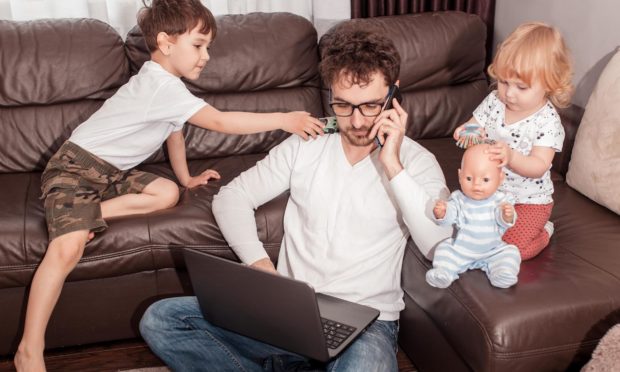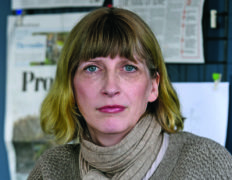Today many of us will wave our children off to school with a big smile and a sigh of relief.
I spoke to a friend recently who is an amazingly competent woman. She is at the top of her career and highly intelligent. She told me that, after months of juggling work and home schooling, she is suffering from anxiety.
Sound familiar? Yes, me too.
Being a parent is hard enough. We didn’t sign up to be teachers as well, let alone being cooped up together 24/7 with the only respite being the weekly supermarket shop.
Over the last year coronavirus has shaped our lives and our parenting skills have been pushed to the limit, leaving many of us burned out before the rebuilding has even begun.
I’m no model mum, but as an adoptive parent and respite foster carer, I am plugged into a community of people who know everything there is to know about bringing up kids. These people take the country’s most traumatised children and nurture them, facing the most challenging behaviour it is possible to imagine. So if you want a fresh start, here’s some top parenting tips from the best in the business.
First of all, it’s easy for kids to be good when they’re getting everything they want. Don’t mistake a child who behaves well at home with a well behaved child. If your child can’t sit quietly in a restaurant or wait patiently while you have a conversation, then you need to start asking them to do things that they don’t want to do more regularly. The foster carers I know make sure their children lend a hand with household chores. If they contribute to the mess, they can help clean it up. Besides, if your children lounge around while you do all the housework, what do you think they’ll expect when they leave home?
More from Eleanor Bradford
-
Prioritising walls over people in school return decisions
-
Emotional impact of queries on names
-
Key workers failed by online schooling
Stop being a 1970s housewife and not only will you feel less stressed, your sons and daughters won’t grow up to follow gender stereotypes either. If your child is old enough to get toys out, they’re old enough to put them away. That means they can tidy up after themselves from the age of three. Yes, three.
Games consoles, social media and other screen time is a parents’ best friend because this is what your kids care about. This is what successful parents use to motivate children to do what needs to be done (ie the chores); screen time is earned and the time spent on it rationed. Then, when you need some “me time”, you can give them extra time and you won’t hear a peep for hours.
Now, let’s talk about guilt. Stop feeling guilty about going out to work, especially if you work full-time. When we adopted our kids they’d never known an adult in the house who went out to work each day. Their birth parents didn’t work and their foster carers earned a living by looking after them. Our children watched us go out to work each day and started to dream about the careers they’d like to have.
‘None of us are saints’
Secondly, you don’t have to occupy your children every minute. Leaving them to their own devices when they are bored is an important part of childhood. That’s advice straight from social workers.
And finally, never measure your success by the performance of others. Parents can’t help bragging about their own kids but it can be difficult to hear, especially if you’re the only one in the group with the underperformer.
If you lose your rag and say all the wrong things, relax with a stiff gin and reflect on the fact that hormones are playing a big part
If I can keep my care-experienced children out of prison I will have beaten the odds. It’s a great feeling to let go of all that pressure to have a musical or academic genius. You know when they’ve done their best, don’t worry if it doesn’t impress your friends.
The mantra all adoptive parents are told is a good one: “You don’t have to be a good parent. You just have to be good enough.” None of us are saints, especially when struggling with a difficult teen. If you lose your rag and say all the wrong things, relax with a stiff gin and reflect on the fact that hormones are playing as much of a part in their behaviour as your parenting.
When times get tough, I am spurred on by the support of the great parents I am honoured to know. We can all come out of the past 12 months stronger and, if not great parents, certainly good enough.
Eleanor Bradford is a former BBC Scotland health correspondent who now works in communications in the education sector

